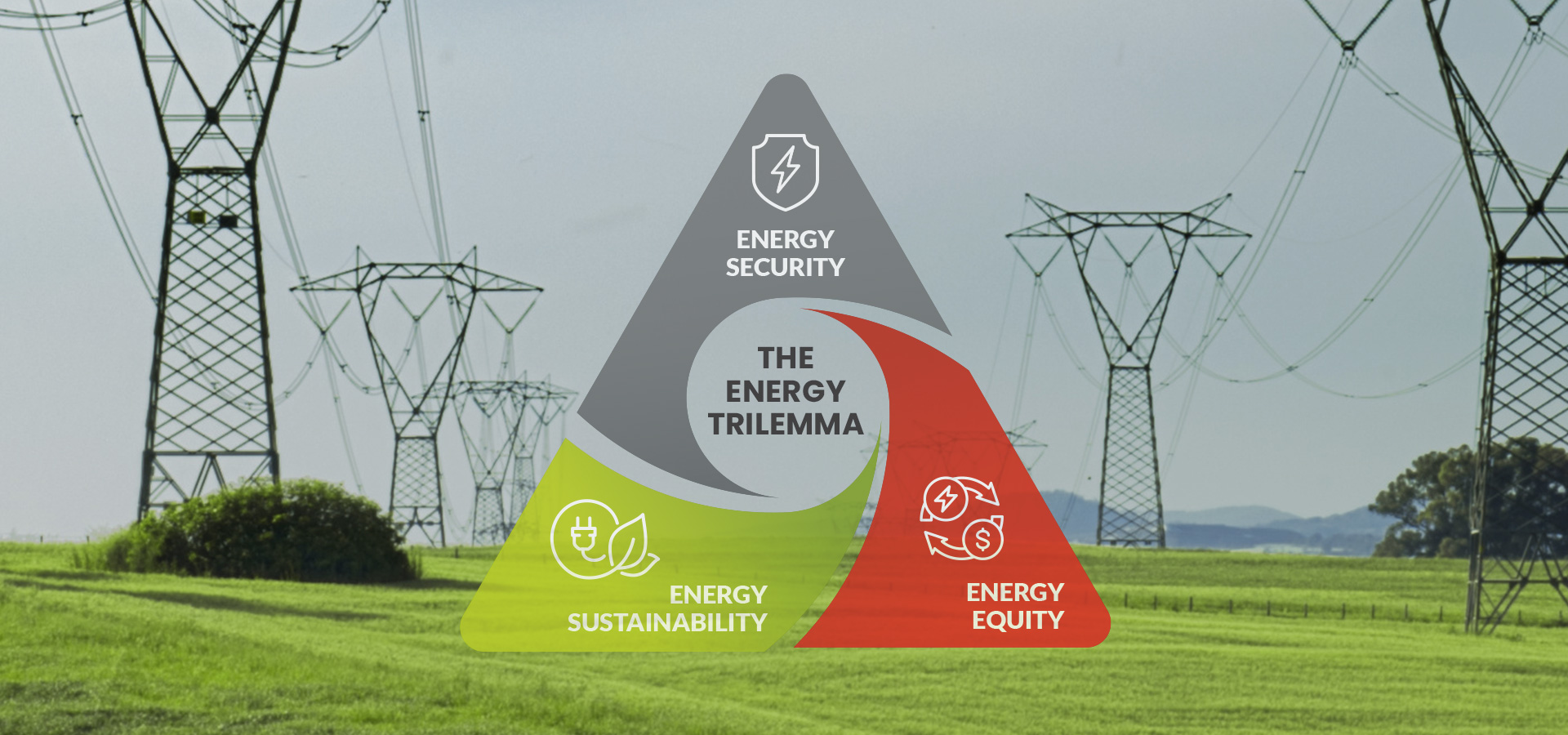
Meeting rising energy demands and adhering to clean energy standards are at the heart of the current energy transition. However, a closer look reveals three main components that must be individually addressed as the world continues to grapple with de-carbonization and energy sustainability. Collectively, these components are called the “Energy Trilemma” and they seek to strike a balance between security, affordability/equity, and sustainability.
The Energy Trilemma Defined
Energy Security is the reliability of meeting current and future energy demands. This includes the ability to withstand and recover from system shocks like price, geopolitics, or lack of supplies. Energy security also involves the resilience of energy infrastructures.
Energy Affordability/Equity essentially refers to the access of affordable and abundant energy, whether it be for domestic or commercial use. This includes basic access to electricity, fuel, and gas.
Energy Sustainability is the mitigation of environmental harm and climate change emissions. This includes productivity and efficiency of generation, transmission, and distribution, as well as decarbonization, and air quality.
The trilemma provides a framework toward energy transition and making sustainable energy and systems a reality. Every country, city, and industry has its own resources and energy needs. Finding a tailored national and local approach requires identifying how resources can answer each challenge of the trilemma as well as various methods, technologies, and investments.
Security, affordability, and sustainability can be seen as three independent and equal components, each with a unique “weight” or “score” – none are more important than the others. This helps countries, cities, and corporations to identify where they are positioned and where they want to be. This is imperative when determining if new policies or projects are helping or hindering moving towards desired goals and what adjustments need to be made to current policies and projects.
A Universal Ranking System
The World Energy Council’s Energy Trilemma Index Tool ranks countries on their ability to provide sustainable energy across all three components. The “rank” is essentially a country’s overall performance in achieving a sustainable mix of policies while the “balance grade” highlights how well a country manages the trade-offs between the three challenges. For example, renewable energy requires significant capital spending and government support. So, these more energy sustainable sources require a trade-off with affordability. Energy prices would then rise to balance investment in renewables and the trade-off would be more expensive energy.
These three components of the trilemma relate closely to a country’s economic activities. There are a few major factors that affect the correlation between a country’s economic growth and energy sustainability. In most cases, the energy trilemma positively benefits economic growth (GDP), employment, and business development. From renewable technologies to investments, and circular economic practices, tangible benefits can be seen within these communities. In other cases, some argue that sustainability and economic growth are incompatible; a common belief is that developing countries must face the dilemma of trade-off between economic growth and energy security. As a result, it is assumed that these countries prefer economic growth rather than a sustainable environment and maintaining energy security.
Work in Progress
In order to reap the long term and economic benefits of balanced energy security, affordability, and sustainability, there must be short term plans in place for renewable energy developments and investments. On a global scale, the focus should remain on supporting individualized plans towards energy transition rather than a one-size fits all approach, where some economies may prosper while others will not.
Want to read other important industry articles and blogs? Click HERE.

